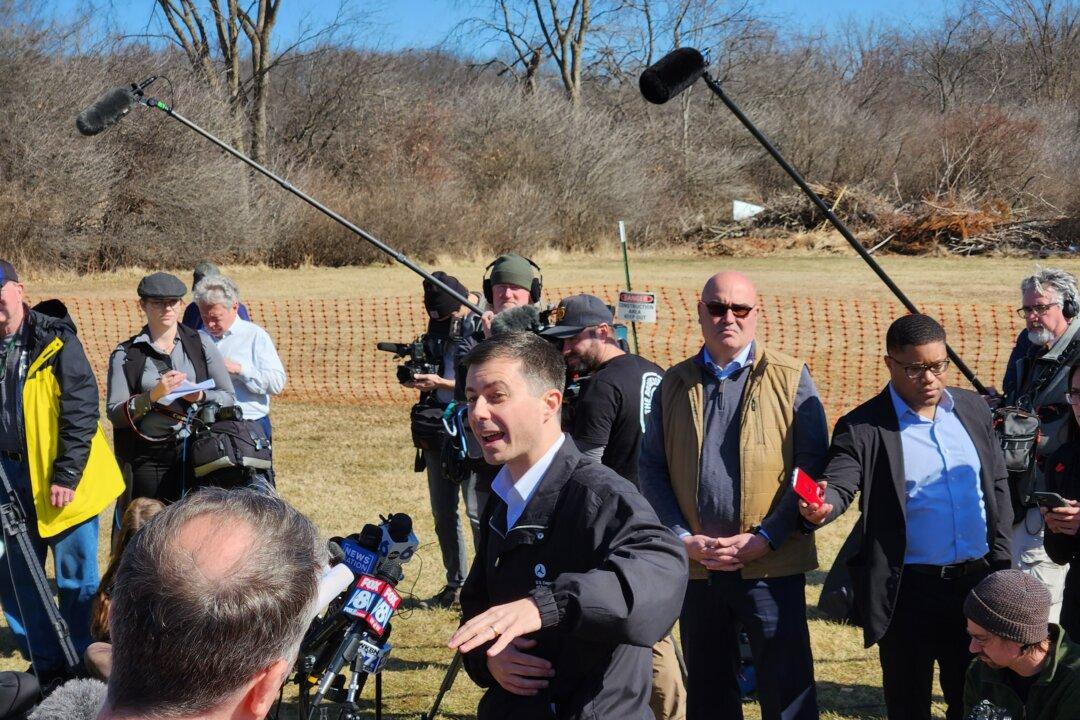Nearly three weeks after a toxic train derailment upended life in the village of East Palestine, Ohio, Transportation Secretary Pete Buttigieg made his first visit to the community to meet with those affected on Thursday, Feb. 23, promising accountability and higher safety standards.
Noting that the National Transportation Security Board released its preliminary findings on the derailment earlier that morning, Buttigieg reassured that ensuring accountability would be a top priority for the administration.





